After graduating from the Vietnam Aviation Academy in 2017, Pham Thi Kim Hang started working as an assistant to the General Director at a logistics company with a salary of 20 million VND/month. After more than a year, Hang quit her job to pursue her dream of opening a “green grocery store” where plastic waste is reused and people with disabilities have job opportunities.
In 2019, Hang opened the first Limet Zero Waste in Ho Chi Minh City with two clear goals: reducing plastic waste and creating jobs for people with disabilities.
Turn plastic into fashionable handbags
To create recycled plastic bags, Hang and her colleagues had to experiment with dozens of weaving, pressing, and material processing methods. “ Nylon was not born to be fabric, so it was very difficult to process. When the products were made, they were ugly. Customers did not buy them. There were times when I thought I had to give up ,” she recalls.
But instead of stopping, Pham Thi Kim Hang chose to continue studying. She traveled to the North to learn about hand-weaving workshops, learned design techniques on her own, then returned to Ho Chi Minh City to edit each bag model according to customer feedback.

Many people think that "going green is hard to survive", but Hang's model proves the opposite, recycled products can still be commercially viable if they are beautifully designed, durable and have a story behind them.
“ Nylon is not like fabric, it is not breathable, does not hold thread, and does not withstand heat evenly. To weave it, you have to try many times to get a stable material ,” Hang said.
At first, the recycled plastic bags looked monotonous, with patchy colors, not attracting buyers. But instead of giving up, Hang taught herself design, consulted fashion trends, and then adjusted every detail according to customer feedback from zipper, size, strap thickness to shape.
“ I realized that customers do not want to buy recycled products out of pity. They want them to be beautiful, durable, and usable. If the recycled product is ugly, it cannot be called sustainable ,” she said.
The special thing about this bag line is that each one is almost a “unique version”, because no two nylon sheets have the same exact color. The “unique” factor has become a fashion mark, helping more than 20,000 products to be consumed in just a few years.
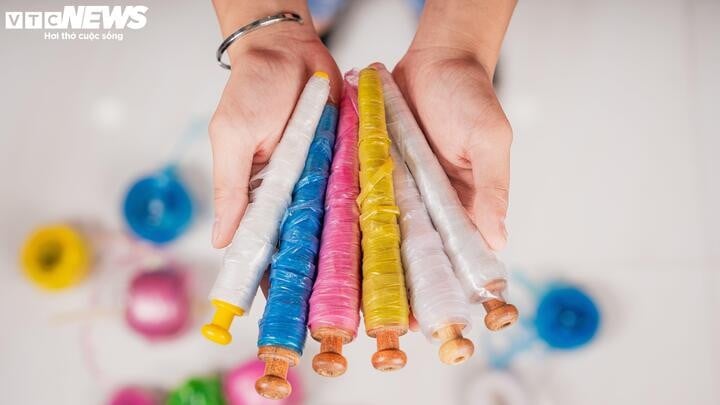
Ms. Bich Hao (Binh Trung Ward, Ho Chi Minh City), a customer who bought a fashion bag made from nylon, shared: “ I didn’t buy it because it was made from recycled materials, I bought it because it was beautiful. But when I found out it was made from nylon, I felt even more proud to use it .”
From being skeptical, this model was honored in the Top 10 National Startups and Top 15 International Innovation Models in 2022 and was invited to share by many universities and environmental organizations.
Green - clean - kind
Hang’s decision to change direction and pursue plastic bag recycling not only stemmed from her concern about plastic waste, but also from her family’s circumstances. Her father is blind, so from a young age, Hang understood the disadvantages and barriers to employment opportunities for people with disabilities. She not only wanted to reduce waste, but also to eliminate prejudice and create opportunities for the less fortunate.
Currently, Limat has 16 employees, of which 80% are disabled people, including the visually impaired, the hearing impaired and the physically disabled. Each month, this model recycles nearly half a ton of plastic bags and plastic packaging, creating products such as fashion handbags, wallets, backpacks, accessories and many other environmentally friendly items.
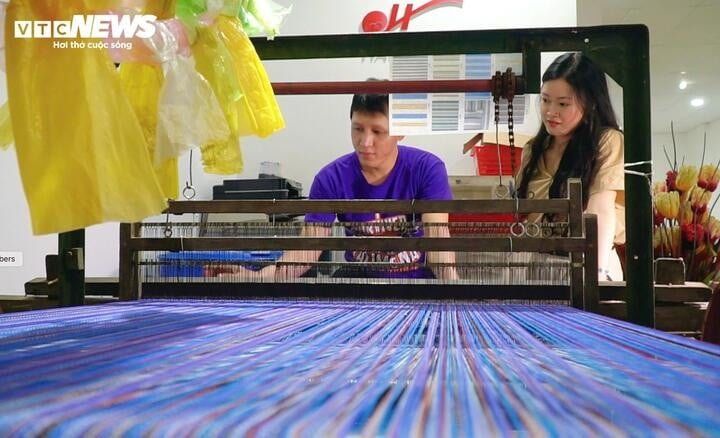
Hang calls her model “green business with a heart”. Although it originates from the goal of protecting the environment, it is the social aspect that makes Limart special, as most of the products are directly made by people with disabilities.
At Limat, the visually impaired are in charge of customer consultation and online sales; the hearing impaired are in charge of weaving nylon and sewing bags; and the physically disabled are in charge of design and marketing thanks to their good creativity.
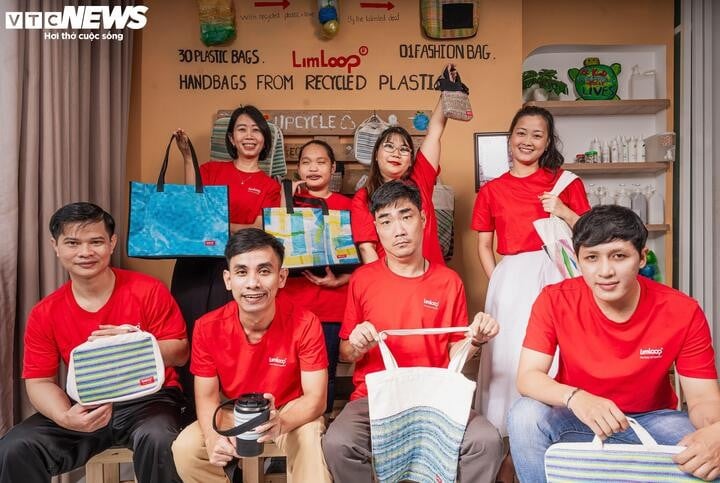
Ngo Thi Phuong Linh, a visually impaired employee at Limat, shared: “ Every time a customer asks about a product, I feel respected, no longer a person in need of help, but a person creating value. Before, I used to think that disability meant dependence, but here I get to work like a normal person .”
Tran Giang Anh Thu (born in 1993), a deaf girl, has been working here for nearly a year. At first, Thu only took on the job of cutting recycled nylon threads, but because it is difficult for deaf people to find stable jobs, she always considered this a valuable opportunity.
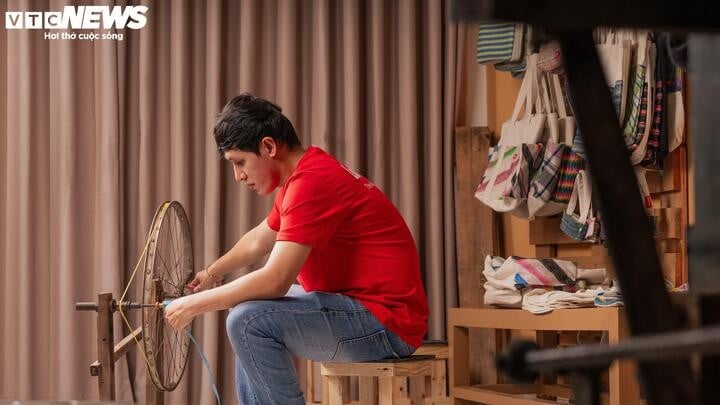
When Limat received training support from a sponsor, Thu was selected to study to become a Warehouse Manager, a position that requires computer skills, data management and professional communication. Although she had not been exposed to a computer for more than 30 years, Thu took advantage of every lunch break to teach herself warehouse vocabulary in sign language, practice software operations and record procedures.
Currently, she is an efficient Storekeeper and also teaches specialized signs to deaf colleagues, becoming an important link in Limat's operations.
The average salary of disabled employees at Limat is from 7 to 12 million VND/month, depending on skills and position. This income level is not high compared to the general labor market, but for people with disabilities, it is the door for them to be independent in their lives.
Amidst the big discussions about environmental policy, circular economy , net zero… the story of 9X girl Pham Thi Kim Hang reminds that change does not always come from billion-dollar corporations, but can start with an old plastic bag and a steadfast heart.
Source: https://baolangson.vn/tai-che-nilon-thanh-tui-xach-co-gai-9x-tao-viec-lam-cho-nguoi-khuet-tat-5064105.html


![[Photo] Closing of the 14th Conference of the 13th Party Central Committee](https://vphoto.vietnam.vn/thumb/1200x675/vietnam/resource/IMAGE/2025/11/06/1762404919012_a1-bnd-5975-5183-jpg.webp)


![[Photo] Prime Minister Pham Minh Chinh receives the delegation of the Semiconductor Manufacturing International (SEMI)](https://vphoto.vietnam.vn/thumb/1200x675/vietnam/resource/IMAGE/2025/11/06/1762434628831_dsc-0219-jpg.webp)




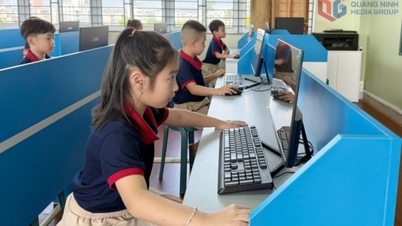

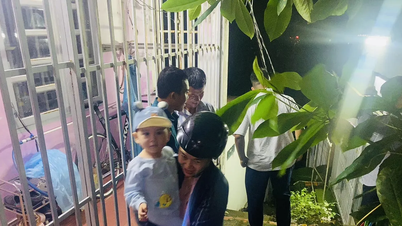

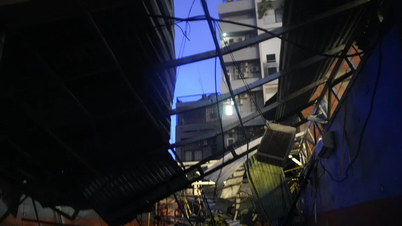
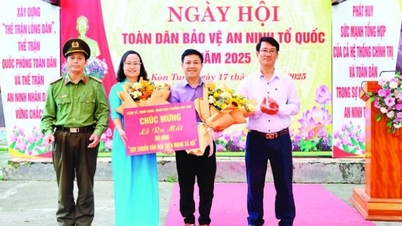






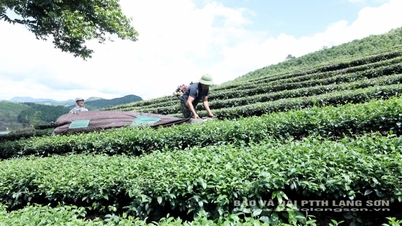


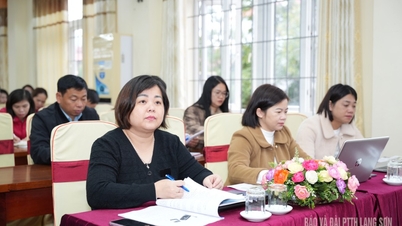

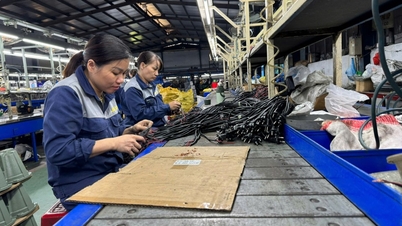























































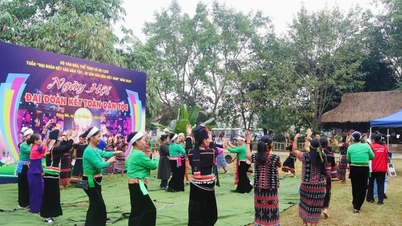




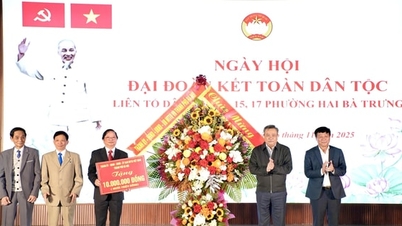

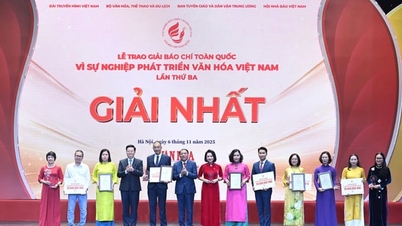













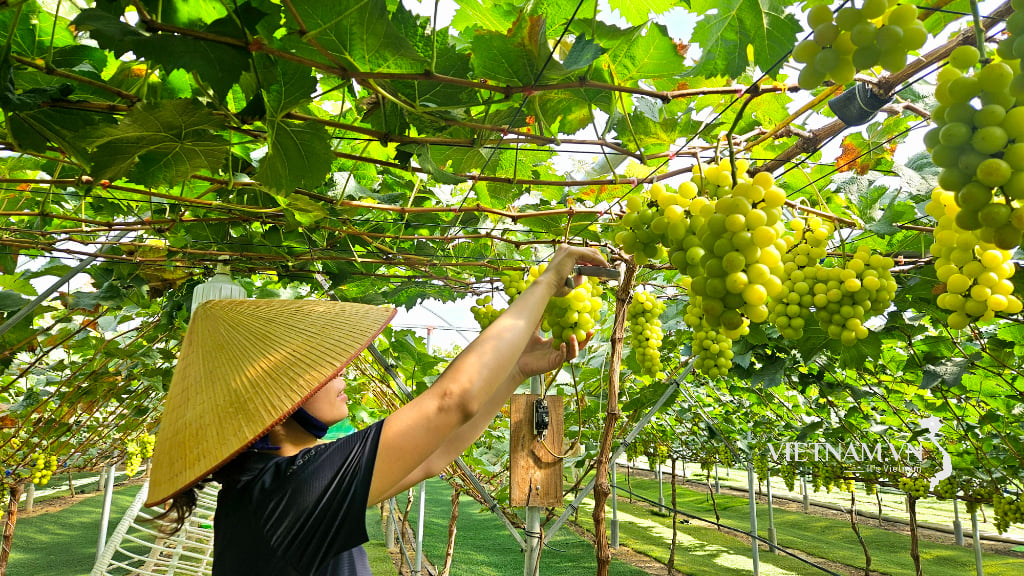
Comment (0)